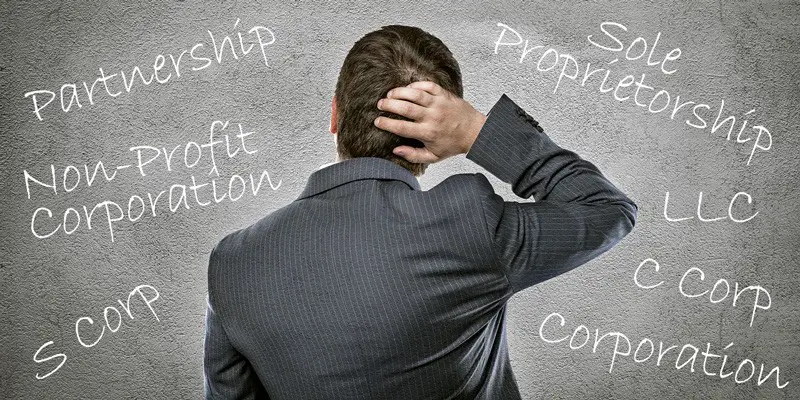One of the most important choices that you can make when starting a business is the type of legal structure that you need. This decision will affect your ability to raise money, personal liability that you encounter, as well as the amount of paperwork that your business needs to do. Therefore, it is not a decision that you can make lightly.
Types Of Business Entities
The kind of business structure that you choose should be determined by three major factors: record keeping, liability, and taxation. Here are the differences between common business entities:
Sole proprietorship – this is the most common type of business organization. People like it because it offers them complete managerial control and is easy to form. However, if you start a sole proprietorship, you will be personally liable for all the financial obligations of your business.
Partnership – this formation involves two or more persons who share the profits and losses of a business. A partnership does not usually bear the benefit of profit-losses or the tax burden of profits. However, each partner is personally liable for the financial costs of the business.
Corporations – This legal entity is made to conduct business. It is separate from those who start it and is solely responsible for its own actions. The main disadvantage of a corporation is that it is very expensive to start and requires extensive record keeping.
Selecting A Business Entity
If you want to know the best business entity, you need to evaluate several criteria, including:
Legal liability – to what extent do you wish to be protected from legal liability? If you do not want to be personally liable for any potential loss associated with the business, you should you should opt for a corporation. The protection of personal assets is the main reason why most people get into corporations.
Flexibility – your goal is to take full advantage of the flexibility of an ownership structure by looking at the unique needs of your business as well as your personal needs. Your individual needs are essential because no two businesses can be similar, especially if several owners are involved. Moreover, no two people have the same financial situations or goals.
Tax implications – based on your personal situation and goals, what opportunities do you have to minimize taxation? There are much more tax deductible options available for corporations than there are for partnerships and sole proprietorships. A common disadvantage of incorporating your business is double taxation. However, business losses can reduce your personal tax liability in the first years of your business.
Cost of ongoing administration and formation – tax advantages may not offer enough benefits to make up for the other costs of running a corporation. The high cost of paperwork, record keeping, and other costs of incorporating might force some people to choose other business entities. Moreover, there is no real reason to burden yourself with the needs of a corporation unless you are getting protection from liability or benefiting from tax implications.
Future needs – when starting your own business; you might be caught up in the moment. As you are consumed with getting it off the ground, it will be hard to see the bigger picture. However, you need to think about what your business will become when you die or sell your business. A corporation might dissolve and go to family members upon death of the owner.
Are you wondering what the best entity for your startup is? You can check Delaware entity search to see the kinds of businesses that exist. This might help you to make up your mind by seeing the type of business that people prefer.
Image from https://medium.com/@hellomeets/choose-the-right-business-entity-for-your-startup-9b4320c8943d
 Business First Family Business, Accounting, Finance, Investing, Marketing And Management
Business First Family Business, Accounting, Finance, Investing, Marketing And Management
